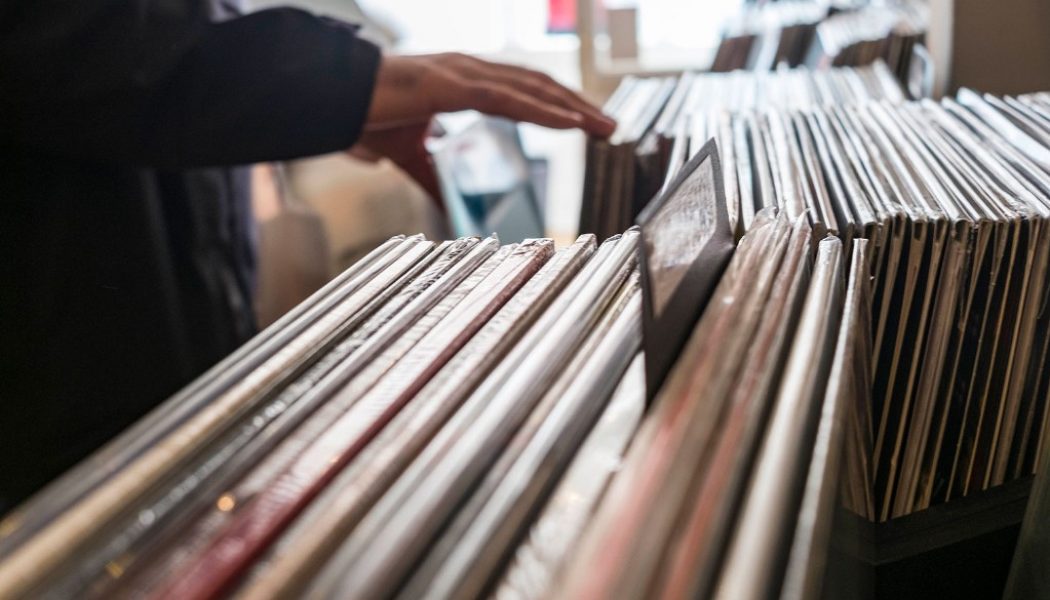
“Nothing is more important to me than making sure all accounting is entirely accurate,” co-founder Nan Warshaw responded in a statement to Billboard.
In March 2019, Bloodshot Records co-founder Nan Warshaw announced her resignation from the Chicago-based independent country label after Bloodshot artist Lydia Loveless accused Warshaw’s partner of sexual misconduct. The plan was for co-founder Rob Miller to buy Warshaw’s 50% share in the company.
But more than a year later, artists and staff members at Bloodshot, home to acts like Jason Hawk Harris and ROOKIE, say the label’s issues are far from resolved.
On Monday, the entire non-ownership Bloodshot staff sent a letter to every artist on the roster, warning them that because Miller could not pay fair market price for Warshaw’s share, Warshaw is shopping it to third-party buyers instead. Further, the letter claims that Warshaw owes some unspecified artists, songwriters and publishers a “considerable” amount of unpaid royalties.
“The day after label co-owner and co-founder Warshaw publicly resigned on March 12, 2019, the staff arrived at Bloodshot headquarters and endeavored to operate Bloodshot as the ethical, defiant label that the artists, staff, and fans had always believed it to be,” reads the letter, which surfaced in screenshots on social media and was obtained by Billboard in its original form. “However, behind the scenes, delay soon gave way to opposition, which revealed irreconcilable differences in ideology between Warshaw and co-owner Rob Miller.”
The staff writes that upon Warshaw’s resignation, they were tasked with organizing and accounting for all of Bloodshot’s financial documents. While Miller’s statements and artist payments were located, audited and deemed to be accurate, the staffers claim they were unable to do the same for Warshaw’s.
“It is our belief that some of the statements were not generated, or at the very least, never sent to the relevant artists, publishers, or songwriters,” the letter reads. “Additionally, many of the royalty statements that we were able to locate appeared to be either inaccurate, incomplete, or calculated using methods that differ from those mandated by the recording contracts.”
Reached by email, Warshaw tells Billboard that there may have been “some errors” in the label’s accounting processes.
“I have poured my heart and soul into Bloodshot Records since founding it more than 25 years ago. For me, this label has always been, first and foremost, about growing and supporting unique and great artists,” she says. “Having stepped away from day-to-day operations more than a year ago, I have been exploring ways to set up Bloodshot and our artists to succeed in the future, even as I know it is personally the right moment in my life for me to sell my stake in the company.
“When conducting due diligence as part of that transition, we discovered that there may have been some errors in our prior accounting processes,” she continues. “As someone dedicated to the principle of making sure that all artists are compensated fairly and fully for their work, I made sure we immediately began to investigate those issues and how they might have impacted all of our artists, past and present. Whatever misleading reports might suggest, nothing is more important to me — professionally or personally — than making sure all accounting is entirely accurate and past mistakes are quickly rectified, and I am completely committed to doing so.”
Miller declined to comment.
Hawk Harris was one of the first Bloodshot artists to comment publicly on the situation, retweeting screenshots of the letter with the note, “I can confirm this.” Hawk Harris tells Billboard that he has not personally been affected by the alleged withheld payments — his debut album, Love & the Dark, was released months after Warshaw’s resignation. “The reason I came out is because I felt like I had less to lose,” he says. “And I hate the idea of artists being scared to come forward about this.”
He adds that he was “shocked” by the news that Warshaw would sell off her share of the label. “Taking Rob’s offer would have been the right thing to do, instead of trying to cash in after she was involved in a situation that ruined one of her artists’ life in some ways,” he says, referring to the 2019 scandal. “It’s been over a year since all this happened. Nan’s not doing anything illegal — it’s her company, and she has the right to do what she’s doing. I just don’t think it’s ethical.”
Labelmate Sarah Shook of the band Sarah Shook & The Disarmers posted a lengthy and blistering statement on social media, writing that “It seems Nan is choosing to spend her time shopping the Bloodshot label around in an attempt to find the highest bidder so she can simply wash her hands of the consequences of her actions.”
Other artists are less incensed. Vandoliers lead singer and guitarist Joshua Fleming tells Billboard that the band has not been affected by the alleged unpaid royalties, and is optimistic about the potential sale. “It’s not that we don’t have other homes we could find, but this is a place that fosters our kind of sound,” he says. “If some yuppie millionaire comes in and just buys the brand and shelves it, that’d be terrible. But I don’t think anybody wants that, from what I’ve heard.”
Warsaw and Miller founded Bloodshot in 1993, and it has since become known for its DIY ethos, championing “insurgent country” music and helping launch the careers of artists like Neko Case and Justin Townes Earle.
In February 2019, Loveless publicly accused the label of failing to address the behavior of Warshaw’s partner, Mark Panick, whom Loveless claimed sexually harassed and groped her at label events over multiple years. Adding to the public outcry, Loveless’ statement came as multiple women accused Ryan Adams of sexual harassment; Adams’ first solo album, Heartbreaker, was released on Bloodshot in 2000.
At the time, Miller responded in a statement that while he disagreed with “certain characterizations” in Loveless’ claims, “the story is essentially, and sadly, true,” adding that upon first learning about Panick’s behavior several years prior, he had banned Panick from any Bloodshot gathering and from contacting any Bloodshot artists or staff members. The following month, Warshaw announced her resignation, writing that “Because I don’t want my personal decisions to be a negative distraction from the amazing work the bands and staff are doing, for the moment I’m going to step away from Bloodshot.”










